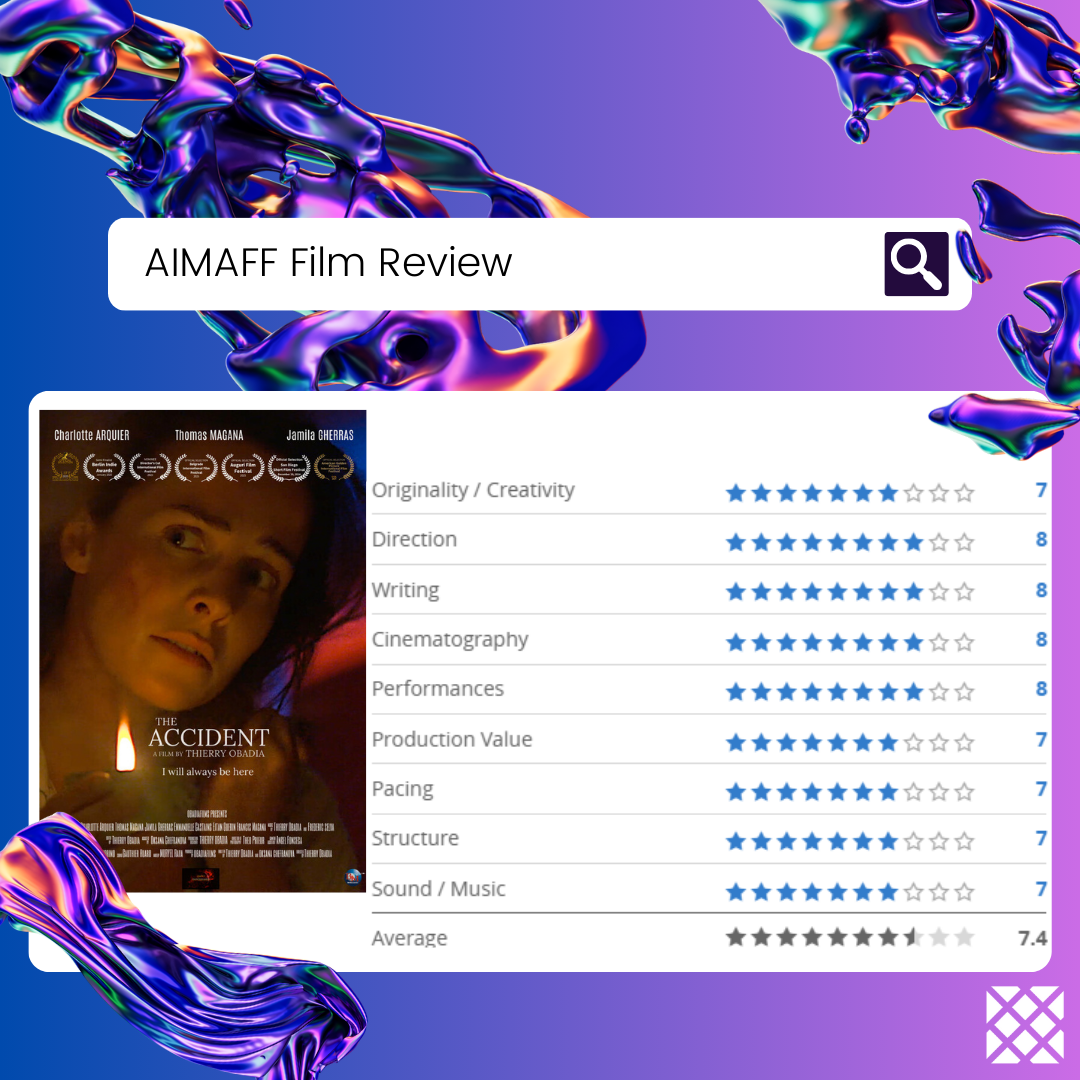"Ghosts of the Mind: The Accident Blurs Reality and Trauma"
Can we ever truly escape the shadows of our past? Thierry Obadia’s The Accident, co-written with Oksana Chefranova, doesn’t just ask this, it immerses us in the eerie echoes of its aftermath. This psychological drama, wrapped in the structure of a family tragedy, crafts a ghostly meditation on loss, recollection, and the delicate boundaries between illusion and truth.
At the center is Charlotte, a young woman ensnared within the vast yet stifling confines of a country estate, her mind a landscape of sorrow. The house itself is not just a backdrop but a labyrinth of mourning, its hallways filled with the murmurs of memory. Nature, too, plays a silent role. It is a poetically haunting tableau, shaping Charlotte’s fragile existence as she hovers between lucidity and delusion.
Obadia and Chefranova craft the film with a nearly hypnotic precision. The cinematography oscillates between vivid color and stark monochrome, reflecting the conflict between Charlotte’s fragmented mind and the harsh weight of reality. Drawing us into the gravity of her solitude, each frame an echo of unsaid anguish. The transitions between time and memory dissolve like fading dreams, lending the film an almost hallucinatory quality. Charlotte Arquier delivers a performance steeped in raw emotion, embodying a character whose pain is both personal and elusive.
However, The Accident is not without its imperfections. Some disjointed audio moments interrupt immersion, and the film leaves us craving a fuller understanding of Charlotte’s past. Who was she before the accident? What defined her existence beyond her suffering?
A claustrophobic yet enthralling descent into grief. The intricate production design and seamless editing construct a world that feels both profoundly intimate and universally evocative. The poignant score flows beneath the surface, pulling us deeper into Charlotte’s shattered reality.
Is healing found in confronting the past, or in surrendering to it? The film offers no easy answers, only the lingering resonance of Charlotte’s journey—a haunting, poignant uncertainty that stays with us long after the screen fades to black.

